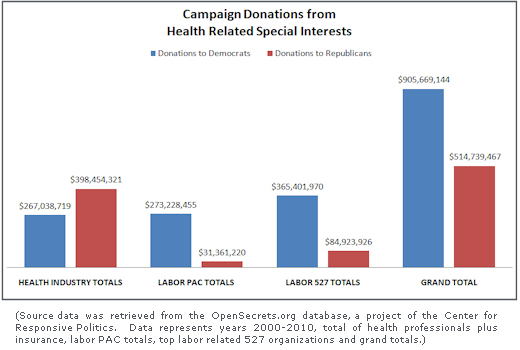The 2009 elections have come and gone. New Jersey elected a Republican governor. That is more of a surprise than the fact that Virginia now has a Republican governor (for the first time in 8 years) and less of a surprise than the Democrats winning House seats in New York and in the San Francisco Bay Area.

Mixed results you say? If so, is there anything to be learned from these elections? The answer is no, because we should have learned these lessons already. In case they have been forgotten, however, here they are:
5. Off year Elections Are Hard on the President’s Party. The President’s party loses 20 seats, on average, in the House in the mid-term elections. When President’s approval rating is below 50%, that number doubles. So it can be of little surprise that voters dealt the Democrats losses this November.
4. Deficits Worry Voters. Ross Perot made a 3rd party career out one issue back in the 1990’s – deficits. Polls show deficits worry voters to this day and weighed on the minds of these voters. As the former Democrat Governor of Virginia Widler said: “This is no time for the spending that they’re doing.”
3. The Number One Issue In Virtually Every Election is the Prosperity issue. Long before James Carville said it was “the economy stupid,” the state of people’s fortunes was the number one determinant of their vote. Hoover didn’t lose to Roosevelt over their looks – it was the state of the economy. In this case, the “in-party” was subject to a bit of a backlash because they are the party in power during bad economic times.
2. Higher Taxes Really Bother Voters. Taxes remain an enduring issue – from the original Tea Party to today’s. New Jersey imposes the highest tax burden in the Nation on its citizens and Democrat Gov. Corzine held out the threat of more. He lost. The Democrat candidate for Governor in Virginia waffled on new taxes. He lost. Heck, even the voters of Higley Unified School District in Arizona turned down the continuation of a school parcel tax estimated to be only $59.50 per household. Oh, and Nancy Pelosi offered a bill right before the election featuring higher taxes – not to mention the impending threat of the same from Obama.
So with those time-honored factors working against the Democrats, why were the results just mixed?
Because of the #1 lesson.
1. Without A Clear Agenda – Republican Gains Are Limited. Ask yourself how many times the Republicans have taken the Congress WITHOUT A CLEAR AGENDA during the 60s, 70s, 80S, 90s and 00s? Of course, the answer is not once. Keep in mind, during that time, the Democrats had some really bad or troubled Presidents, i.e. Lyndon Johnson refused to stick out a re-election run and don’t forget a peanut farmer named Jimmy Carter. The Republicans even had a great President, Ronald Reagan and didn’t take back the House and the Senate.
Why is that? Because Republican voters are far more finicky than Democrat voters. Democrats will vote for (D) by the name of a candidate with far more regularity then Republicans will do for a simple (R). Quite plainly, Republicans demand more of their candidates.
In 1994, that demand was answered with the Contract with America, i.e. a clear agenda standing in sharp contrast to where the incumbent President and his party were taking the country.
In 2010, because of the poor policies of the Obama Administration since it took over, unemployment will be above 10% and the deficit could well be in the $2 trillion range. The conditions for Democrat candidates will not be good. No doubt – Republicans will pick up seats.
By clearly standing for something, they can do more than that. They can lead the nation and take back the Congress.
COMMENTS
Please let us know if you're having issues with commenting.